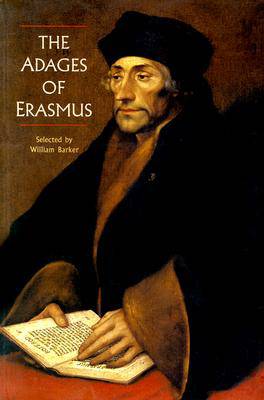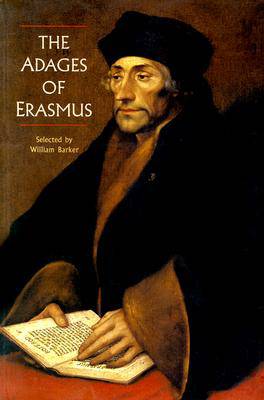
- Afhalen na 1 uur in een winkel met voorraad
- Gratis thuislevering in België
- Ruim aanbod met 7 miljoen producten
- Afhalen na 1 uur in een winkel met voorraad
- Gratis thuislevering in België
- Ruim aanbod met 7 miljoen producten
Omschrijving
Erasmus was fascinated by proverbs and prepared a collection of more than 4,000 of them, accompanying each with his comments, sometimes in a few lines and sometimes in full-scale essays. His massive compendium, characterized by his wit, his elegance, his bursts of satire alternating with serious views, was among the most learned and widely circulated of Renaissance books. This selection emphasizes Erasmus' skill in explaining the proverbs, shows how he made his book, and demonstrates the way in which many of the proverbs moved into the English language. The text is illustrated with images by Brueghel and D]rer and examples of proverb use from emblem books.
Over eighty proverb essays are presented here. Some are masterpieces of social criticism ('War is sweet to those who have never tried it'), others provide scholarly explanations of philosophical ideas or gestures and customs ('Thumbs up'). Many of the proverbs have passed into modern usage ('Know thyself', To give someone the finger' 'Well begun is half done'), some even retaining their Latin form ('Deus ex machina'). And a few, it turns out, were created by Erasmus himself through his occasional misinterpretation of the ancient languages ('Pandora's box', 'To call a spade a spade').
This edition replaces the pioneering work by Margaret Mann Phillips, providing more essays and more detailed source and background information for the texts. It is based on the translations and scholarship of the Collected Works of Erasmus - mostly that of Sir Roger Mynors but also the work of Phillips herself.
Specificaties
Betrokkenen
- Auteur(s):
- Uitgeverij:
Inhoud
- Aantal bladzijden:
- 384
- Taal:
- Engels
Eigenschappen
- Productcode (EAN):
- 9780802077400
- Verschijningsdatum:
- 17/11/2001
- Uitvoering:
- Paperback
- Formaat:
- Trade paperback (VS)
- Afmetingen:
- 153 mm x 229 mm
- Gewicht:
- 680 g

Alleen bij Standaard Boekhandel
Beoordelingen
We publiceren alleen reviews die voldoen aan de voorwaarden voor reviews. Bekijk onze voorwaarden voor reviews.












